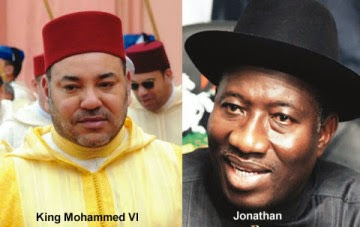The article published by SaharaReporters March 10, begins with a prophetic and frighteningly introduction: “By the time you're reading this, Musiliu Obanikoro could have been confirmed by the Akindanidani senators.” In the piece, I described Mark as a godless character and self-serving and of no utility value as a senator and president of the senate to the Nigerian people.
I stated that not much is expected of a senate dominated by crooks, looters, and dupers like Mark, that the National Assembly particularly the Senate had abdicated its insight and oversight function. Then, I conclude with a question of some uncertainty and difficulty: “Will these cowards and thieves ruling Nigeria allow this nation to join the society of human beings? Who will breathe new life into this comatose nation?”
Tuesday, March 11, Obanikoro was confirmed by 69 PDP senators while 40 APC senators walked out in protest. Obanikoro was President Goodluck Jonathan's principal negotiator in the video (Ekitigate) involving the rigging of last year's gubernatorial elections in Ekiti State.
Mark is the wrong senate president at the right time. How a leader deals with the circumstances of life tells you many things about his character. The political scam which confirmed Obanikoro was initiated and led by Mark. It paints a powerful picture of Mark as a man without a vision. Crisis doesn't necessarily make character, but it certainly reveal it. Adversity is a crossroads that makes a person choose one of two things – character or compromise. Every time he chooses character, he becomes stronger even if that choice brings negative consequences.
Obanikoro's confirmation rail road by Mark shows Mark as a man with eyes that are larger than his stomach. Mark lives completely in the present, depends solely on corruption and other criminal perks hence he repeatedly failed to see the future. All his life – both as a military officer and as a politician – Mark is like the Biblical Esau known for his near nearsightedness. Like Esau, Mark focused solely on here and now, convinced that tomorrow never comes, always ready to give up the ultimate to get the immediate even with a single meal.
Any fool can steer the ship, but it takes a leader to chart the course. Leaders who navigate do even more than control the direction in which they and their people travel. They see the whole trip in their minds before they leave the dock. They have a vision for their destination, they understand what it will take to get there, they know who they'll need on the team to be successful, and they recognize the obstacles long before they appear on the horizon. Mark can't read the GPS of the Nigerian nation. He doesn't know where he's taking the nation. He doesn't have what it will take to get the nation to its destination. He can't assemble a team that is useful for the trip. A leader knows when to lead, what to do, and where to go. Mark doesn't know what to do and where to go. He's lost and so the nation.
Integrity matters. A leader should be able to challenge his friends and subordinates to identify his flaws. Only a leader with strong character and a strong sense of security can do that. C.S. Lewis called this quality, “Leaders with chests.” Lewis likened the properly ordered soul to the human body: the head (reason) must rule the belly (the sensual appetites) through the chest (character and spirit). The chest, says Lewis, is the indispensable liaison between reason and the appetites. Without a strong “chest,” Lewis says, men would succumb to excuses, relativism, and compromise. Lewis calls those with no character, or integrity, “men without chests.” Mark is a man without chest.
Mark has proven over and over again throughout his tenure as senate president that he's tormented by self-indulgent motives with no solid character. He's not committed to doing the right thing at the right time. When leaders like Mark become lazy and corrupted and insensitive, they lose their diligence in doing good for their people and for their country. They become sluggards and worthless to the people they're supposed to serve.
Mark forgets his time is limited. He forgets there is no way to retrieve misused time. He forgets leadership must be about something much bigger than him. He forgets if his leadership advances merely his own “kingdom,” only increases the profits of his own benefits to himself, he has failed the higher calling of leadership. A leader must serve and benefit others.
David Mark represents all that is wrong with leadership in Nigeria. Like a pig skittered between trees and sunk into mud, squealing with shameless pleasure, Mark has successfully chaperon a senate with a shameless political culture being nationalized.
Again, can any good come out of David Mark's Senate?
byolu@aol.com









